What is the Mastercard Questionable Merchant Audit Program?
September 25, 2024
5 Ways The Mastercard MATCH List Impacts Your Life
November 20, 2024How to Avoid Chargebacks and the MATCH List
Chargebacks are an inevitable thing that happens with every business. A dissatisfied customer for any reason, whether it is your fault or not, can decide to open a chargeback against you. Sometimes, customers do not understand the implications of chargebacks and how damaging they can be for a business and do not allow the business owner to rectify a situation or misunderstanding. If you are dealing with chargebacks and want to make sure they don’t permanently damage your business, there are steps you can take now to avoid them. Keep reading for ways to avoid chargebacks and avoid getting placed on the MATCH List due to excessive chargebacks.
What is the MATCH List?
The MATCH List helps acquirers identify potentially high-risk merchants before entering into a merchant agreement. The MATCH List stands for Mastercard Alert to Control High-risk Merchants, and it allows an acquiring partner to look at whether another acquiring partner has terminated a merchant in the past and the reason for that termination to aid in an onboarding decision. This will provide acquirers with the opportunity to develop and review enhanced or incremental risk information before entering into a merchant agreement.
There are 13 ways you can be placed on the MATCH List:
- Account Data Compromise
- Common Point of Purchase (CPP)
- Laundering
- Excessive Chargebacks
- Excessive Fraud
- Mastercard Questionable Merchant Audit Program
- Bankruptcy/Liquidation/Insolvency
- Violation of Standards
- Merchant Collusion
- PCI Data Security Standard Noncompliance
- Illegal Transactions
- Identity Theft
If you are placed on the MATCH List, your bank will discontinue your merchant account, and you will be on the list for a period of five years. During this time, it is nearly impossible to get another merchant account without being branded as “high-risk,” leaving you to deal with extremely high fees and lengthy contracts.
So much information is on the MATCH List, including your name, your business partner’s names, everyone’s address, and much more, making it nearly impossible for you to continue operating any kind of business that accepts credit cards. As you can imagine, being placed on the MATCH List is essentially a blacklist with a business death sentence.
How Many Chargebacks Are Too Many?
As mentioned, chargebacks can be an inevitable part of every business for many reasons. This is why banks allow a very small number of them to happen. According to the Mastercard MATCH List definition, here is how many chargebacks are too many:
With respect to a Merchant reported by a Mastercard Acquirer, the number of Mastercard chargebacks in any single month exceeded 1% of the number of Mastercard sales Transactions in that month, and those chargebacks totaled USD 5,000 or more.
With respect to a merchant reported by an American Express acquirer (ICA numbers 102 through 125), the merchant exceeded the chargeback thresholds of American Express,as determined by American Express.
Excessive chargebacks are one of the most common reasons that businesses get placed on the MATCH List. This is why knowing how to avoid them altogether is extremely important.
Have Great Security Measures
Understandably, people who have their identity or credit card information stolen will open chargebacks against transactions that they did not make. Even though this type of situation is through no fault of your own or the fault of the original cardholder, it can still be counted against you in the eyes of the MATCH List.
Ensuring that you have great security measures can help alleviate a lot of this issue. Asking your customers for their ID to verify their identity or having a CAPTCHA verification for online purchases can help weed out many unscrupulous buyers that can end up as chargebacks.
Have Written, Clear Policies
One of the main reasons that people open chargebacks is due to business policies that aren’t clearly stated. Having a written, clear policy will help protect you against chargebacks that are opened against you.
For example, if a customer opens a chargeback for not receiving their refund, you can prove to the bank that your policy states that you have up to 30 days to refund them and that you are still inside of that window.
Customers are much less likely to open a chargeback against a business with clearly stated policies. Make sure your policy is clearly posted in your place of business and is clearly and easily accessible on your website.
Customer Service is Number One
It goes without saying that it is very important for every business to provide great customer service. Not just to build a great reputation and rapport with their customers, but also to avoid chargebacks and to protect their business.
Make sure that your customers have an easy way to get a hold of you. Clearly post your business’s phone number and customer service email address, use social media, or take advantage of online chatbots to help you. If a customer does reach out to you, make sure you get back to them in a timely manner to answer their questions and concerns.
Customers who reach out to a business and do not receive a timely response are much more likely to open a chargeback against them. You can also set up automatic reply emails to let customers know when they can expect a reply from you, whether that is within the same day or by the next business day.
Provide Accurate Photos and Descriptions
When posting photos and descriptions of your products or services, be as accurate as possible. If a customer receives something that does not match up with the description or photo, they will then have the ability to successfully open a chargeback against you. Do not edit photos too much or over-fluff product descriptions. Keep everything as simple and straightforward as possible.
When it comes to descriptions, we can also refer to your business’s description. Make sure that your business name is clearly stated on bank transactions rather than using acronyms, initials, or a DBA. This will keep customers from accidentally opening a chargeback against you, thinking that it was an unknown fraudulent purchase.
Keep a Paper Trail
When accepting credit cards, it is important to use point-of-sale software that keeps detailed information about each transaction. When your business is automated in this way, there is less manual data input work for you to do that could cause an error.
In addition, you will have a great paper trail to refer to if a customer does decide to open a chargeback against you. You can protect yourself by showing that the transaction or refund was given within your company’s stated policy, whether the purchase was made in person, and exactly the product or service that was ordered.
Get Off the MATCH List with TFM Law
Sometimes, you can end up on the MATCH List due to excessive chargebacks, no matter how hard you try. As mentioned, a lot of chargeback instances can happen through no fault of your own. If you need help getting off the MATCH List and want to avoid the five-year waiting penalty, we can help you.
It’s time to get off the Match List. You have options. Don’t wait the five-year period; get back to business ASAP.
The Law Offices of Theodore Monroe focuses on litigation and counseling in the areas of payments, credit card processing, e-commerce, direct response marketing, and Federal Trade Commission enforcement.
Last year, the firm removed 100% of the people who came to us from the MATCH list.
Theodore F. Monroe, Founder of TFM Law, has successfully:
- Represented merchants recovering funds from processors
- Structured processing relationships to comply with Card Brand requirements
- Drafted and negotiated contracts involving payment facilitators and ISOs
- Represented continuity merchants in compliance and litigation issues
- Fought for numerous companies in suits brought by the Federal Trade Commission and obtained excellent results for firms in the digital products, loan modification, government grant, and nutraceuticals industries
Before opening his firm, Mr. Monroe practiced law with Crosby, Heafey, Roach & May (now Reed Smith LLP) and Lewis, D’Amato, Brisbois & Bisgaard (now Lewis, Brisbois, Bisgaard & Smith), where he defended numerous accounting and law firms in professional liability actions, and insurance carriers in bad faith actions.
Before becoming a lawyer, Mr. Monroe worked as a forensic accountant at Coopers & Lybrand, which provided him with a unique background in forensic accounting and financial analysis among litigators in Los Angeles. Mr. Monroe studied at Duke University Law School, achieved a BS with Honors in Accounting from the University of Kentucky, and is a member of the California State Bar and the Kentucky State Bar.




